In his reflection on the Final Document following the October 2-27 session, which Pope Francis chose to directly implement instead of the usual practice of issuing a Post-Synodal Apostolic Exhortation, Fr. Anaehobi says that end goal of the synodal journey has been “to make the Church more effective at evangelization by making it more participatory and inclusive.”
The official of RECOWA says that the Final Document of the Synod on Synodality “is built upon the post-resurrection appearances of Jesus to his apostles.”
He notes that proposals in the Document, such as issues to do with the Diocesan and Parish pastoral and finance Councils, are already being practiced in Africa.
“However, there are some points that, though not new, need more attention from an African point of view,” the Nigerian Catholic Priest says.
He says that issues such as synodal life style, new ministries, space for women, place for people with disability, as well as the digital environment as a prophetic space and formation of all on synodality need more attention from an African viewpoint.
(Story continues below)
On new ministries within the Catholic Church, the Final Document recommends that certain ministries of service in the community be officially recognized and entrusted to some people for promoting the mission of the Church.
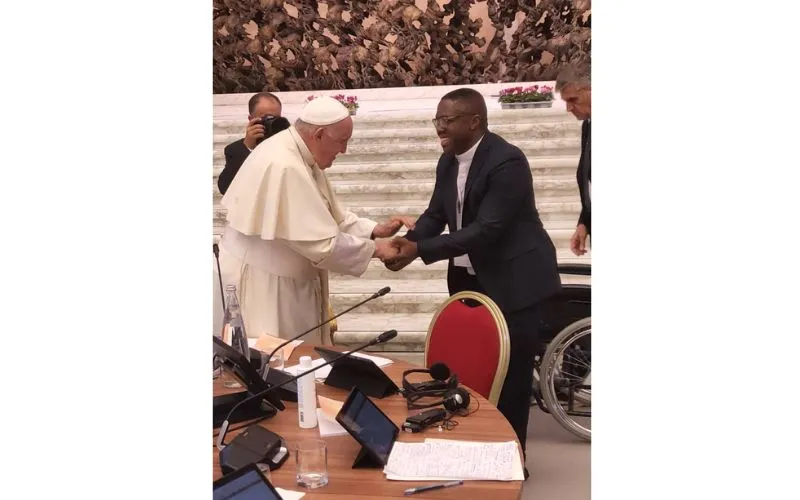 Credit: Fr. Vitalis Anaehobi
Credit: Fr. Vitalis Anaehobi
According to Fr. Anaehobi, the call to “creativity and courage” is a call to those in authority to invent ways of increasing the participation of the people of God in the life of the local churches.
This, he says, will involve discerning which services, already done by ordained ministers, and do not necessarily need the sacrament in order to carry them out, can be assigned to the Laity. “This will be a way of easing the tasks of priests and encouraging differentiated co-responsibility,” he says.
On the place of women in the Church, Fr. Anaehobi notes that giving more space to women will require increasing their competence in order to enable them to do well what they are expected to do.
This, he says, will involve encouraging women to invest in areas that will improve their competence and in creating learning experiences for them.
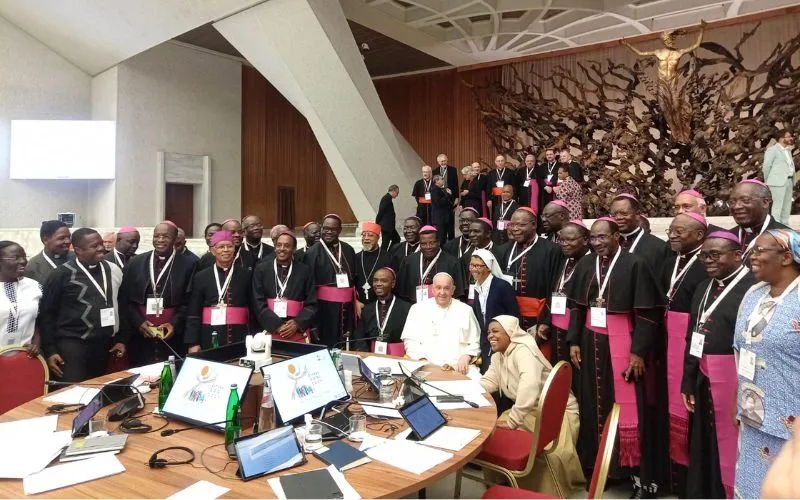 Credit: Fr. Vitalis Anaehobi
Credit: Fr. Vitalis Anaehobi
On the digital environment as “a prophetic space”, the Nigerian Catholic Priest says, “The Synod recognized the rapid revolution that is taking place in the digital environment and its impact in the life of people, especially the youth.”
“There is need for official engagement and investment of each African local Church in this domain which is fast becoming the privilege area for encountering the people of God,” Fr. Anaehobi says in his 10-page reflection shared with ACI Africa on November 8.
Agnes Aineah is a Kenyan journalist with a background in digital and newspaper reporting. She holds a Master of Arts in Digital Journalism from the Aga Khan University, Graduate School of Media and Communications and a Bachelor's Degree in Linguistics, Media and Communications from Kenya's Moi University. Agnes currently serves as a journalist for ACI Africa.
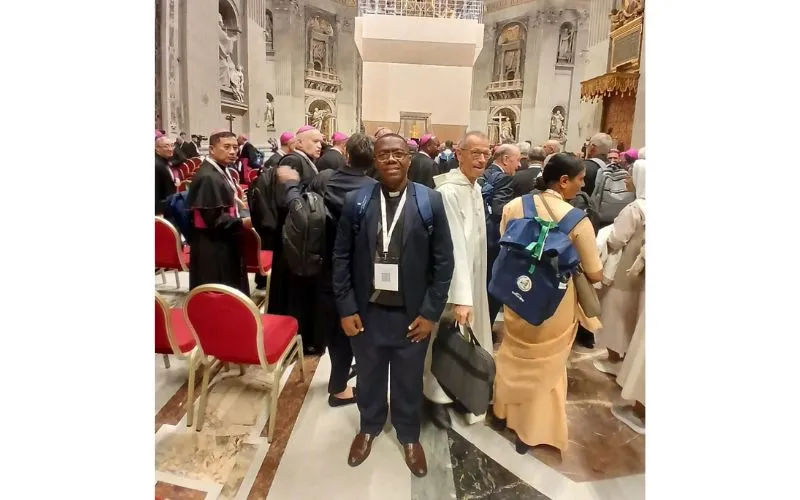 Fr. Vitalis Anaehobi. Credit: Fr. Vitalis Anaehobi
Fr. Vitalis Anaehobi. Credit: Fr. Vitalis Anaehobi


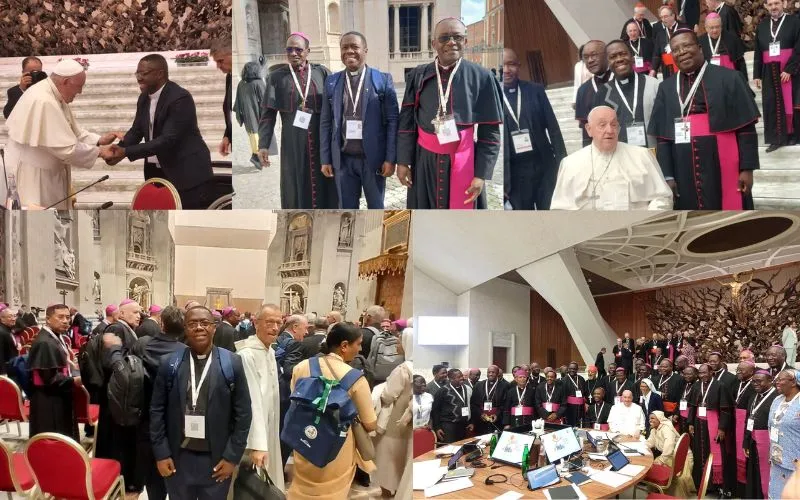
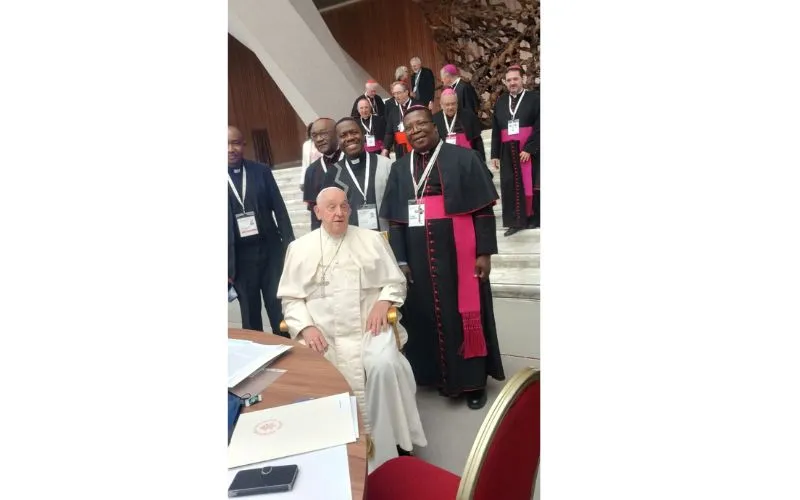 Credit: Fr. Vitalis Anaehobi
Credit: Fr. Vitalis Anaehobi
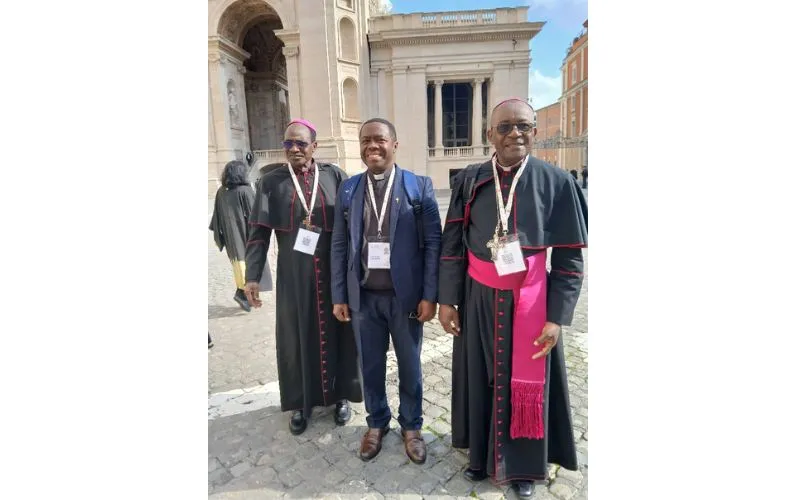 Credit: Fr. Vitalis Anaehobi
Credit: Fr. Vitalis Anaehobi Credit: Fr. Vitalis Anaehobi
Credit: Fr. Vitalis Anaehobi Credit: Fr. Vitalis Anaehobi
Credit: Fr. Vitalis Anaehobi


